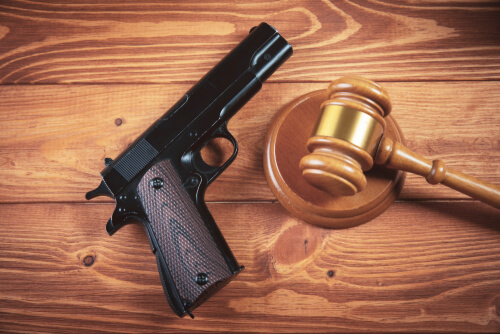The Appellate Division concluded with the following in relevant part: Read in context, it is clear that Bruen’s focus on the Nation’s early history of firearm regulation pertains to the substantive criteria used by licensing regimes to deny applications, not to whether states may require citizens to file a truthful application for a gun permit. The falsification disqualification provision is sui generis among the statutory disqualification criteria set forth in N.J.S.A. 2C:58-3. Unlike the other disabilities, it does not focus on the applicant’s background or suitability to possess a firearm. Rather, it is designed to safeguard the integrity of the licensing and background check process. In practical effect, this provision establishes a procedural bar to the issuance of an FPIC or PPH, not a substantive one. Stated another way, this provision does not impose substantive limitations on who is qualified to obtain a firearm. Indeed, anyone, regardless of their background or physical or mental health, can avoid falsification disqualification simply by telling the truth on their application.
Because Bruen allows states to require individuals to apply for a firearm license/permit, it logically follows that those states may also require the information in the application be complete and truthful. We deem a falsification disqualification feature integral to and inseparable from the inherent structure of a gun-licensing regime. Because the United States Supreme Court has already endorsed the concept of shall-issue licensing regimes, we must presume that an implementing law safeguarding the integrity of any such regime by insisting the application is complete and truthful will likewise pass constitutional muster.
Relatedly, and even more simply, Bruen carefully instructs: When the Second Amendment’s plain text covers an individual’s conduct, the Constitution presumptively protects that conduct. The government must then justify its regulation by demonstrating that it is consistent with the Nation’s historical tradition of firearm regulation. Only then may a court conclude that the individual’s conduct falls outside the Second Amendment’s “unqualified command.”
It is clear the Second Amendment’s plain text does not cover lying on an application. That conduct is simply not protected by the Second Amendment and so regulation of that conduct is not subject to the analogical test. Petitioner’s facial challenge to the falsification disqualification feature thus fails under the threshold question raised in the Bruen analysis.
A fair counter to the Court’s analysis is that fundamental constitutional rights should not be infringed based on technicalities. If the false statement is immaterial to the right to bear arms, it should not be a basis to deny a gun permit application.

